How each NBA team can win or lose more games than projected
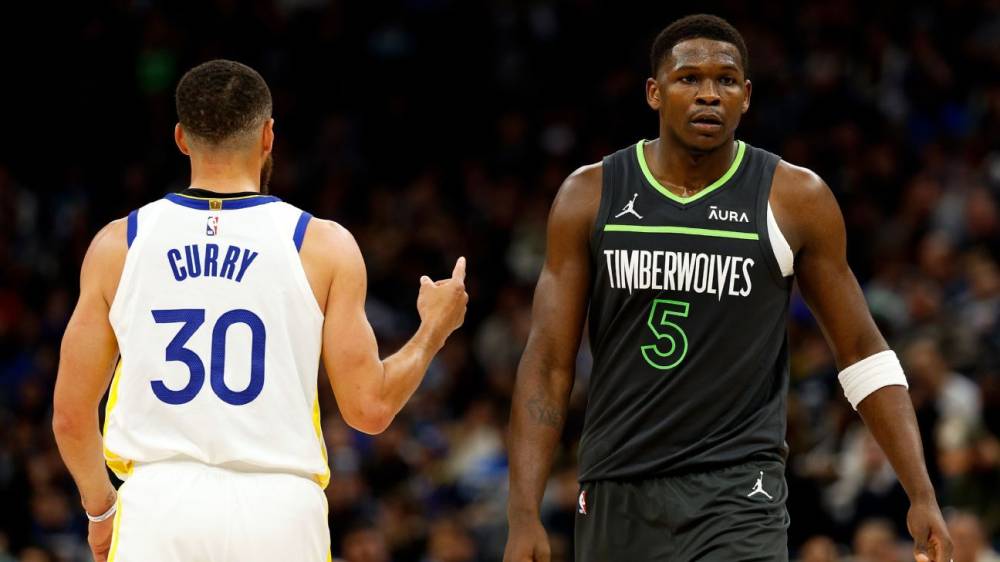
My stats-based wins projections for all 30 NBA teams, updated after the blockbuster trade sending Karl-Anthony Towns to the New York Knicks in exchange for a package that netted the Minnesota Timberwolves Donte DiVincenzo and Julius Randle, are an attempt to account for a typical scenario of how the season plays out.
In practice, there are plenty of scenarios that can allow a team to beat its projection, from better health to player improvement to making trades. So let’s run through one such outcome for each NBA team and see how it can improve its projection — with a twist.
Leading into what’s expected to be a loaded NBA draft, not every team wants to win more games than projected. Rebuilding teams like the Brooklyn Nets and Washington Wizards would surely prefer to win fewer games, maximizing their lottery odds. So we’ll look at how pushing down the minutes of their key players might help them accomplish that goal.
With that in mind, here’s how each team can do better (or in some cases, worse) than projected.
Jump to:
ATL | BOS | BKN | CHA | CHI | CLE
DAL | DEN | DET | GS | HOU | IND
LAC | LAL | MEM | MIA | MIL | MIN
NO | NY | OKC | ORL | PHI | PHX
POR | SAC | SA | TOR | UTA | WAS

Eastern Conference
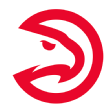
Atlanta Hawks
Scenario: Risacher proves a quick study
Result: 34.2 wins (+2.3)
Playing teenage rookies is usually the fastest way to the lottery, a tension I highlighted in the Hawks’ original projection. What if this year’s No. 1 pick Zaccharie Risacher beats his projections? For this scenario, I used Patrick Williams’ rookie season as a guide to Risacher being a capable low-usage, 3-and-D player right off the bat. That alone would provide Atlanta with an additional two wins.

Boston Celtics
Scenario: Repeat as NBA’s best offense
Result: 54.3 wins (+1.9)
Even with an injury that is expected to sideline starting center Kristaps Porzingis until December, I was surprised that the Celtics projected just fourth in offensive rating after posting the best mark in NBA history last season. If we bump up Boston to the top of the league, that gives the defending champs the best projection for any team.
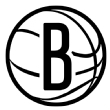
Brooklyn Nets
Scenario: Trade starters
Result: 35.1 wins (-1.8)
I’m shocked this isn’t higher, but redistributing minutes from Nic Claxton, Dorian Finney-Smith, Cameron Johnson and Dennis Schroder within the roster pushes Brooklyn down a couple of wins. Part of the reason it isn’t more is the Nets have no 2024 draft picks on the roster. (Their only rookie, undrafted guard Yongxi Cui, does not have a projection.) In practice, if the Nets gutted their roster, they’d probably call up players from the G League who would rate far worse to fill some of those minutes.

Charlotte Hornets
Scenario: LaMelo Ball stays healthy
Result: 31.4 wins (+1.9)
The Hornets are in a spot where they’d probably be better off going the other direction, but I wanted to show the impact of LaMelo Ball’s health. He’s projected for 60 games after playing just 58 combined the past two seasons. If we nudge that up to 76 games, the max for any player in my model — and similar to the 75 Ball played in 2021-22 — it’s worth almost two wins.
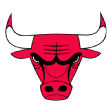
Chicago Bulls
Scenario: Trade Zach LaVine
Result: 29.9 wins (-1.9)
If the Bulls went full rebuild by trading LaVine for expiring contracts and redistributed those minutes within their roster, I have their projection falling below 30 wins, into the bottom five overall. That would put Chicago in a stronger position to keep next year’s first-round pick, which goes to San Antonio if it’s outside the top 10.

Cleveland Cavaliers
Scenario: Evan Mobley wins Defensive Player of the Year
Result: 51.3 wins (+0.7)
The reality is it’s hard to improve much on the Cavaliers’ projection, already second best in the East. In this scenario, I’ve given Mobley the best defensive rating of any veteran player, reflecting a leap to winning Defensive Player of the Year after finishing third in the voting in 2022-23. That adds almost a win to Cleveland’s total.
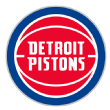
Detroit Pistons
Scenario: Cade Cunningham makes the leap
Result: 30.8 wins (+2.0)
Although Cunningham made solid progress last season, averaging career-high marks of 22.7 points and 7.5 assists per game, it wasn’t the breakout season we’ve awaited from the 2021 No. 1 pick. Let’s say he follows in the footsteps of the player drafted No. 1 a year earlier, Anthony Edwards. Matching Edwards’ offensive rating from last season would generate a two-win swing for the Pistons.

Indiana Pacers
Scenario: Become the league’s best offense
Result: 49.2 wins (+2.5)
The Pacers’ offensive projection is good, certainly, but not quite at the level of what was the best offense in the NBA before Tyrese Haliburton’s hamstring injury in January. If we match the best offensive projection for any other team, in combination with an improved defense, that pushes Indiana’s expectation north of 49 wins.
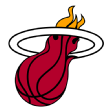
Miami Heat
Scenario: Kel’el Ware contributes immediately
Result: 46.1 wins (+1.2)
My pick as the best rookie at the NBA summer league in Las Vegas, the No. 15 pick in this year’s draft easily outplayed his modest projection. Let’s say Ware matches the production from Mavericks center Dereck Lively II as a rookie last season. Even in a limited role behind All-Star starter Bam Adebayo, that would add more than a win to Miami’s outlook.

Milwaukee Bucks
Scenario: Damian Lillard back to top-five status offensively
Result: 48.3 wins (+1.6)
Lillard’s projection on offense is hardly weak, which is why this doesn’t have more impact. He projects as the league’s 14th-best offensive player. It’s realistic, however, for Lillard to be a top-five player on offense with a year of experience in Milwaukee. Lillard easily surpassed that during his final season with the Portland Trail Blazers.
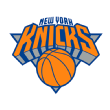
New York Knicks
Scenario: Jalen Brunson repeats as All-NBA first team
Result: 47.5 wins (+2.1)
Brunson’s development into arguably a top-five player in the NBA was a new high-water mark for his performance, so inevitably his projection factors in some regression toward his previous play. If Brunson could duplicate last season’s level of performance, it would add more than two wins to the Knicks’ outlook.

play0:20KAT: Knicks are ‘building something special’
Karl-Anthony Towns speaks to the media and credits Jalen Brunson and the Knicks for creating a special environment at Madison Square Garden.

Orlando Magic
Scenario: Paolo Banchero takes the next step
Result: 45.4 wins (+1.9)
The Magic have a top-three defensive projection after finishing third last season and adding Kentavious Caldwell-Pope in free agency. Their offense would benefit from Banchero continuing his development into a go-to guy after earning All-Star honors last season. Boosting his offensive projection by a little more than a point per 100 possessions results in nearly two more wins for Orlando.

Philadelphia 76ers
Scenario: Paul George has a repeat season
Result: 47.1 wins (+1.9)
George’s projection is dragged down by a couple of factors: his age (34) and the adjustment when players change teams. If we assume George could repeat his 2023-24 performance on offense, that would add nearly two wins to Philadelphia’s projection.

Toronto Raptors
Scenario: Bruce Brown Jr. deadline trade
Result: 32.6 wins (-1.3)
Although the Raptors project to be in the mix for a play-in spot, they might prefer accumulating lottery odds after sending their own lotto pick to the Spurs last season. (That pick became Rob Dillingham, whose rights were traded to the Minnesota Timberwolves.) One simple way for Toronto to head south in the standings would be dealing Brown, who is in the final season of his contract, and giving those minutes to first-round pick Ja’Kobe Walter. That single change moves the Raptors into the league’s bottom eight projections and within striking distance of the bottom five.

Washington Wizards
Scenario: Jordan Poole has another down year
Result: 21.8 wins (-2.3)
With the NBA’s lowest win projection, the Wizards seemingly wouldn’t have much more room to drop. However, Poole’s projection gives him credit for two stronger seasons in Golden State before being dealt to Washington and struggling. If he repeats last season’s offensive rating, that drops Washington’s projection more than two wins, bringing it closer to the team’s 20.5 over/under total at ESPN BET.
Western Conference
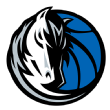
Dallas Mavericks
Scenario: Repeat post-All-Star defense
Result: 50.7 wins (+1.0)
The Mavericks have the second-best offensive projection of any team, but their defense is forecast slightly worse than league average after the departure of forward Derrick Jones Jr. If Dallas could repeat ranking 13th in defensive rating after last year’s All-Star break, that would push the Mavericks’ expectation north of 50 wins.

Denver Nuggets
Scenario: Christian Braun becomes KCP
Result: 48.9 wins (+1.5)
In this scenario, I gave Braun what Kentavious Caldwell-Pope’s projection would have been had he re-signed with the Nuggets. That’s enough to add a win and a half to Denver’s total. In practice, retaining Caldwell-Pope would have done even more to improve the Nuggets’ projections because Braun would still be part of the rotation ahead of lower-rated reserves.

Golden State Warriors
Scenario: Stephen Curry defies aging
Result: 47.7 wins (+2.9)
Truthfully, this is a little more than aging. My projections pull outlier players back to the pack, so even in Curry’s prime he wouldn’t have been forecast to stay quite as dominant as the previous season. But if Curry could run back his offensive rating from 2023-24, it would lift the Warriors’ projection nearly three wins.

Houston Rockets
Scenario: Youngsters maintain defensive improvement
Result: 43.9 wins (+3.5)
In large part because Houston was so bad defensively in the two previous seasons, recent lottery picks Jalen Green and Jabari Smith Jr. have dismal defensive projections. Last season, they were second and third in minutes played on an above-average defense. If they perform at that level, it would lift the Rockets’ defensive projection from 13th to seventh, worth 3.5 wins in the standings.

LA Clippers
Scenario: Kawhi Leonard plays 68 games
Result: 38.0 wins (+1.7)
Because of Leonard’s injury history, he’s projected for 54 games this season. Given that Leonard is managing inflammation in his knee that sidelined him during the 2024 playoffs and kept him off the U.S. Olympic roster, that seems reasonable. If Leonard were instead able to match last season’s totals of 68 games and 2,330 minutes, taking those away from reserves Kobe Brown and Amir Coffey, it would add nearly two wins for the Clippers on average. That estimate might be conservative following Paul George’s departure.

Los Angeles Lakers
Scenario: Anthony Davis plays 76 games
Result: 42.1 wins (+1.4)
Davis’ projection of 68 games isn’t nearly as low, but it is still fewer games and minutes than he played during 2023-24, when his 2,700 minutes were his most since 2017-18. It’s worth noting that even a repeat from Davis doesn’t get the Lakers’ projection to last season’s total of 47 wins. That’s largely because their point differential of +0.6 points per game would typically translate to between 42 and 43 wins.

play1:50Stephen A. worried about LeBron and the Lakers’ title chances
Stephen A. Smith explains why he isn’t sure that LeBron James has enough left to propel the Lakers to title relevance this season.

Memphis Grizzlies
Scenario: Jaren Jackson Jr. wins Defensive Player of the Year
Result: 52.2 wins (+1.1)
After leading the NBA with three blocks per game in 2022-23 en route to Defensive Player of the Year honors, Jackson experienced an unusual downturn last season, seeing his block rate drop by half. That hurt Jackson’s defensive projection, but let’s assume it was a fluke related to the revolving door of teammates around him. If we give Jackson the NBA’s best defensive projection, it improves the Grizzlies’ already rosy win outlook by another game.

Minnesota Timberwolves
Scenario: Repeat as NBA’s best defense
Result: 46.9 wins (+4.2)
The simple explanation for why the Timberwolves’ initial projection is so poor is that they’re projected ninth in defensive rating after leading the league last season. My projections take in multiple seasons of data, which includes 2022-23, when Minnesota ranked 10th on defense. Still, there was nothing fluky about the way the Timberwolves defended last season, and adding guard Donte DiVincenzo likely upgrades their perimeter defense. If we push Minnesota to the top in terms of defensive rating, that could give it an additional four wins.

New Orleans Pelicans
Scenario: Zion Williamson plays 70 games
Result: 43.1 wins (+1.5)
At 50 games, Williamson has the lowest possible projection aside from players with preexisting injuries. Boosting that to the 70 Williamson played last season could jump the Pelicans into the top eight spots, albeit still behind last season’s 49-win pace because of the team’s weak center rotation. An upgrade at the 5-spot would get New Orleans closer that pace.
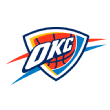
Oklahoma City Thunder
Scenario: Chet Holmgren stays healthy
Result: 54.6 wins (+0.9)
Due to missing his entire first NBA season following a Lisfranc injury, Holmgren is forecast for 67 games after playing all 82 during 2023-24. If we split the difference and give Holmgren the maximum projection of 76 games, that lifts Oklahoma City’s outlook — already best in the NBA — by nearly another win.

Phoenix Suns
Scenario: Kevin Durant helps lead a top-five offense
Result: 46.9 wins (+1.5)
Given the high-end talent on the roster, plus the shooting provided by role players, Phoenix finishing 10th in offensive rating last season was a disappointment — and probably a factor in Frank Vogel being replaced as head coach. Enter Mike Budenholzer, who guided the Bucks from ninth in offensive rating the season before his arrival in Milwaukee to top-five finishes three of the next four years. Merely reaching the top five would be enough to bump the Suns up and provide them with a win and a half.

Portland Trail Blazers
Scenario: Fewer minutes for starters
Result: 31.9 wins (-0.9)
Jerami Grant led last season’s injury-riddled Blazers by playing 1,830 minutes, so it’s perhaps overly optimistic that five Portland players (Grant, Deni Avdija, Scoot Henderson, Shaedon Sharpe and Anfernee Simons) are projected for at least 2,000 this season. If we drop the veterans’ minutes by 300 apiece, giving that playing time to younger reserves, the Blazers’ projection drops nearly a full win.

Sacramento Kings
Scenario: DeMar DeRozan repeats last season
Result: 51.5 wins (+2.1)
Like Paul George in Philadelphia, DeRozan sees his projection decline because of his age and changing teams. In this case, that feels more accurate because DeRozan’s role will change dramatically playing alongside De’Aaron Fox and Domantas Sabonis. Still, if DeRozan could repeat his play with the Chicago Bulls, it would add more than two wins to what’s already a strong Sacramento projection.
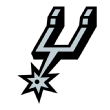
San Antonio Spurs
Scenario: Stephon Castle develops outside shooting
Result: 36.3 wins (+2.8)
The No. 4 pick this June figures to play a key role for the Spurs as a rookie, making his development a major factor in their eventual win total. Castle shot just 27% from 3-point range in his lone season at UConn, suggesting an adjustment to the NBA. I’ve used Cason Wallace’s offensive rating as a rookie with the Oklahoma City Thunder as a model for Castle’s upside, given Wallace shot 35% at Kentucky before jumping to 42% in the NBA. That kind of play by itself would add nearly three wins for San Antonio.

Utah Jazz
Scenario: Shut down Lauri Markkanen
Result: 27.9 wins (-1.3)
With what’s already the weakest projection for any West team, the Jazz might not need to drop in the standings after the trade deadline like they have the past two seasons. Still, cutting off Markkanen at last season’s total of 1,820 minutes and redistributing those to second-year forward Taylor Hendricks and rookies Kyle Filipowski and Cody Williams pushes Utah from the fourth-worst projection overall to second worst — prime lottery position.
Source: espn.com
